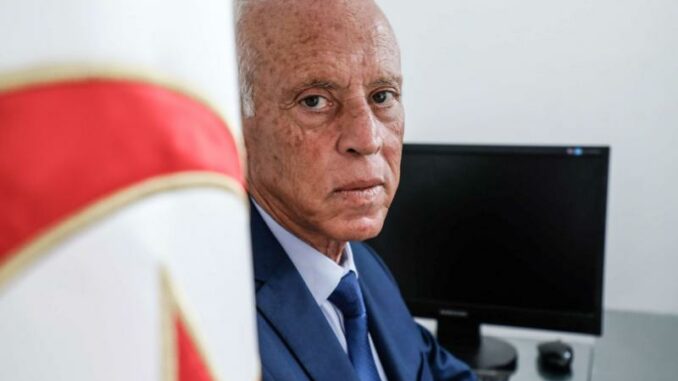
President Kaïs Saïed was sworn in for his second term as President on Monday, October 21, before members of Parliament, just two weeks after securing re-election with a resounding 90.69% of the vote, according to official figures.
His campaign, however, was overshadowed by irregularities, as several candidates were unable to compete for the presidency. This second term begins in a nation where the opposition appears weakened, leaving Kaïs Saïed seemingly in full control.
On the morning of October 21, national television aired special reports and commentaries praising the president. Upon his arrival at the Bardo Palace, where the Tunisian Parliament is located, he was warmly greeted by Brahim Bouderbala, President of the Assembly. “Please accept my most sincere congratulations on once again earning the trust of the Tunisian people, who have chosen you for a second term. This is a clear sign of their desire for stability,” Bouderbala declared. The swearing-in ceremony promptly followed, marking a significant moment for Kaïs Saïed, who often speaks of his leadership as a divine mission. “I swear, in the name of Almighty God, to protect the independence and peace of the country,” vowed the president.
With Tunisia’s opposition nearly dismantled and only two candidates having run against him—one of whom remains in prison—Saïed once again defended his decision to assume full powers in 2021. “Let it be known what was being planned, both inside and outside the country: nothing less than Tunisia’s descent into civil war,” he proclaimed. Throughout his presidency, both in this second term and during his first, Kaïs Saïed has positioned himself as a bulwark against the return of the old political elite that rose to power after the revolution, a narrative he continues to emphasize as his key justification for holding onto power.
